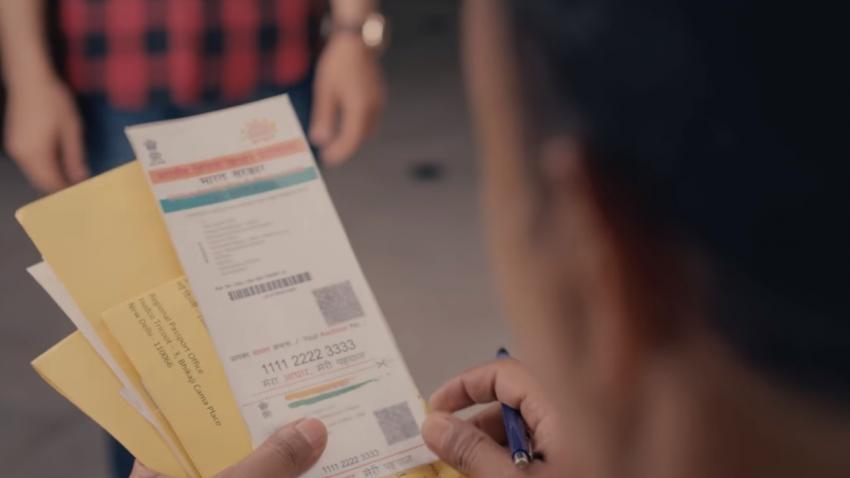Aadhaar Hearings: 10 More Reasons To Be Worried About The Act

On Day 13 of the Aadhaar hearings on February 22, senior counsel Gopal Subramanium criticised those sections of the Aadhaar Act concerning the project’s security infrastructure.
Subramanium contended that these provisions are mere assurances meaning that there is no liability on the part of the UIDAI for any breach of security measures. Some of the other concerns he raised were:
1) Access to probe agencies: Section 33 of the Act which deals with providing Aadhaar information to an investigation agency was challenged as a citizen would not be given a chance to be heard before sensitive personal information would be shared. The language used in section 7 of the Act was also challenged on the ground that it imposes the condition of having an Aadhaar before one can avail access to services, benefits and subsidies.
2) Probabilistic nature: The Senior Counsel argued that biometrics are a probabilistic proof of identity and are subject to failure particularly when the volume of data is as high as under the Aadhaar project. The data itself is problematic as it enables the profiling of persons and can even divulge the location of the person. In the absence of a comprehensive data protection regime, the entire project must be undertaken in accordance with substantive and procedural reasonableness.
3) Exclusion Problem: He next brought the Court’s attention to the exclusion rates of the Aadhaar project, highlighting that in Jharkhand the exclusion rate is as high as 49%. Subramanium prayed that compensation be paid to the citizens who have suffered due to exclusion, particularly in the case of starvation deaths.
4) Software’s foreign link: The senior counsel also raised the issue that the software used by UIDAI in generating Aadhaar numbers and collecting biometrics was owned by a foreign company. The senior counsel argued that this was a security threat as the information could be accessed by the foreign company and ‘put to any use’.
5) Un-Fundamental: On February 21 [day 12 of the petitioners’ arguments], Subramanium referred to the Supreme Court upholding the rights to human dignity, reputation and privacy as fundamental rights to stress that an individual cannot be the point of convergence that poses a danger to the State as well as to the individual. He said Article 13 of the Constitution restrains the legislative and executive arms of the State from enacting any laws inconsistent with Fundamental Rights.
6) Consent: The senior counsel also challenged the Aadhaar Act on the basis that it did not constitute a valid ‘State action’ on the threefold test of rationality, proportionality, and compatibility with domestic law. He further advanced that a mode of identification should pass the tests of being capable of compliance, least invasive, and that consent for it should be natural. The problem with Aadhaar he stated was that it subjected children to identification for receiving mid-day meals.
7) Privacy: In the context of Justice Chandrachud’s remark in the right to privacy judgement, the senior counsel referred to the threefold requirement of a legitimate State interest in imposing restrictions on the right to privacy: There must be a law, the law must encompass a reasonable objective, and the means of attaining the objective must also be reasonable. It is on the third requirement that the entire Aadhaar case rests.
8) All Citizens Not Terrorists: Also on Day 12, the senior counsel’s argument that Aadhaar enables data aggregation in violation of the right to privacy led to a discussion with Justice Chandrachud, who referred to an article by Richard Posner (an American jurist), which stated that privacy is a terrorist’s best friend. To this Gopal Subramanium responded, saying that the State is not justified in surveillance of the entire citizenry of the country as if they were all terrorists.
9) Retrospective Effect: He challenged the retrospective character of the Aadhaar Act with an emphasis on section 59 of the Act. Section 59 legitimises any actions taken by the government prior to passing the Aadhaar Act. To this Justice Chandrachud and Justice Sikri both concurred that no legislation can retrospectively absolve a breach that has occurred.
10) Federalism: It was also argued that the Aadhaar Act violates the federal structure of the Constitution on the basis of the proviso to Article 73 (1). In this proviso the executive power of the Union Government shall not extend to matters on which the state governments are also empowered to legislate on. Therefore, ‘economic and social planning’, ‘social security and social insurance’, and ‘welfare of labour’ contained in entries 20, 23, and 24 of the Concurrent List all fall within the ambit of the Aadhaar Act but are struck by the proviso to Article 73 (1). To this Justice Chandrachud opined that the Act could still be covered under entry 97 of the Union List. Entry 97 states: “Any other matter not enumerated in List II or List III including any tax not mentioned in either of those Lists.” In effect, the residuary power of the Union Legislature.
Get the latest reports & analysis with people's perspective on Protests, movements & deep analytical videos, discussions of the current affairs in your Telegram app. Subscribe to NewsClick's Telegram channel & get Real-Time updates on stories, as they get published on our website.
























